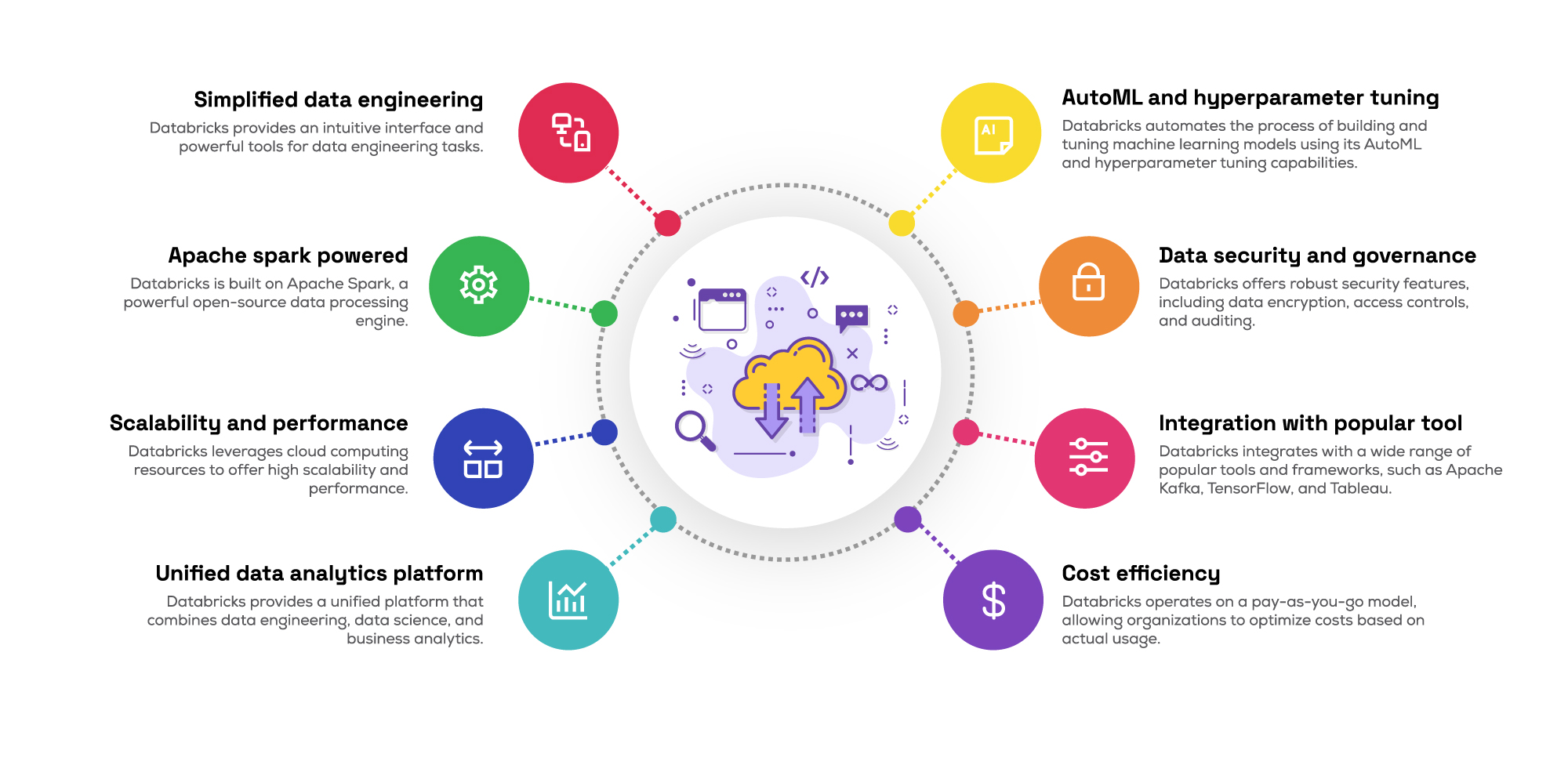
17 Aug Benefits of Hadoop to Azure Databricks Migration
Background for Hadoop to Azure Databricks migration
Due to the ever-changing nature of the IT industry, performance, scalability and cost are closely related to better business outcomes. IT service providers and the clients are always on the lookout for the latest technology to improve productivity and reduce costs.
Talking about higher operational costs and limited scalability, users of the Hadoop platform are finding it increasingly challenging to deliver on today’s user expectations. So, it is no surprise that many originations are migrating from Hadoop to cloud data platforms. By embracing cloud data platforms, enterprises can harness the benefits of scalability, cost-efficiency, and enhanced agility, enabling them to drive innovation, optimize operations, and derive maximum value from their IT & data assets.
Overview of Hadoop vs Azure Databricks
Without getting too technical let’s see why Azure Databricks is the best solution for your Hadoop workloads.
Initial investment
Hadoop is an on-premises solution which comes with multiple issues such as the high initial investment required for purchasing, deploying, and maintaining the infrastructure can be a substantial cost for organization of any size. Whereas Azure Databricks is on the cloud and has no initial costs. In fact, you can choose a free account with limited functionalities or opt for using the pay as you go model, so you get a better understanding of the product.
Limited upgrades
It is always tricky to upgrade hardware components. Hardware has an end-of-life where it has reached its technical threshold. At this point, organizations have a tough choice of either upgrading the hardware and renewing the license or finding a new product. Azure Databricks gives the maximum flexibility of originations and teams of all sizes fit their exact requirements.

Why originations should consider migrating to Azure Databricks
Simplified architecture with added value By adopting the Databricks Lakehouse Platform, you can simplify your architecture by consolidating data, leveraging unified data storage, and processing capabilities, enabling self-service data access, and ensuring data governance and security. This approach allows you to focus on deriving value from your data while reducing complexity and improving overall agility.
Centralized data governance and security Azure Databricks provides collaborative workspaces where data teams can work together on projects. It allows you to define fine-grained access controls and permissions, ensuring that only authorized users can access and modify data. This centralized access control mechanism simplifies data governance by providing a unified platform for managing user access across different data sources and processing workflows. Azure Databricks seamlessly integrates with Azure Active Directory (AAD), enabling centralized user authentication and access management. Azure Databricks integrates with Azure
Monitor and Azure Log Analytics, allowing you to capture detailed logs and audit trails of user activities, system events, and data access. Azure Databricks allows you to deploy your workspace in a virtual network (VNet), providing network isolation and control.
New class of performance metrics across all data workloads
These factors contribute to Databricks’ best-in-class performance for all data workloads. By leveraging the power of Apache Spark, auto-scaling, Delta Engine, runtime optimization, GPU-accelerated computing and many more unique naïve features and functionalities of the Azure platform.
Increased productivity gains and business value
Azure Databricks comes with a unified analytics platform called Azure Synapse Analytics which can be used to track data engineering, data science, and business analytics metrics thus increasing productivity by streamlining usually mundane tasks. The scalability and performance of Databricks enable organizations to process and analyze data faster, leading to quicker decision-making and improved operational efficiency.
Driving innovation with data, ML and AI
Azure provides several services and tools that empower organizations to drive AI innovation such as Azure Cognitive Services, which provides prebuilt AI models and APIs trained industry specific requirements. By default, Azure supports all the most popular deep learning frameworks such as TensorFlow, PyTorch, and Keras which allows organizations to build and train complex neural networks. Our Databricks professional services can develop curated Azure based solutions to cater to all your AI, ML & data needs.
A cloud agnostic platform
Organizations often have diverse cloud requirements and Azure can provide a seamless experience across multiple cloud providers, this flexibility extends to hybrid and multi-cloud architectures, public clouds, on-premises infrastructure, or even edge computing environments. Azure’s extensive global presence also translates to deployment of applications closest to the targeted users. This flexibility across clouds and geographies makes Azure a cloud provider that best suits their specific needs and easily integrate Azure services into their existing infrastructure.

Nuvento’s solution: Hadoop migration assessment
Enterprises are continuing to increase their investments and resources to advanced analytics for accurate insights, machine learning for customer specific algorithms and artificial intelligence for being competitive so their service or product provides the best business and customer experience outcomes. Many of these enterprises realize that their existing Hadoop infrastructure limits their capabilities to improve their productivity, business goals and elevated customer experience. Our Databricks professional services begins with a strategic migration plan.
Strategic Migration Plan
Our Migration plan starts with a 3-week engagement phase where we layout the best path forward and we set ourselves three markers for better outcomes.
- Marker 1: We understand your existing ecosystem to understand your existing workflows, workloads, and Hadoop cluster implementation.
- Marker 2: Produce a migration plan we integrate your existing ecosystems and workflows into Azure Databricks in the least amount of time.
- Marker 3: Produce a report where we lay down recommendations and details for our migration plans specific to your requirements.
Your final report from us will include everything you need to start your Hadoop migration with us. your final report will include:
- A business focused extensive assessment of your current Hadoop infrastructure.
- Our technical approach which addresses your current concerns and fulfils your future expectations along with reference architecture, migration, and costs.
- References of past implementations closest to your workloads.
Take your first step to innovation and growth with a free Hadoop assessment.
